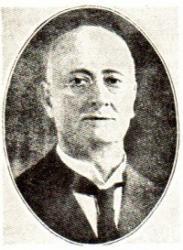Planning worship?
Check out our sister site, ZeteoSearch.org,
for 20+ additional resources related to your search.
- |
User Links
Person Results
H. R. Palmer

1834 - 1907 Composer of "[Would you gain the best in life]" in Melodious Sonnets Palmer, Horatio Richmond, MUS. DOC, was born April 26, 1834. He is the author of several works on the theory of music; and the editor of some musical editions of hymnbooks. To the latter he contributed numerous tunes, some of which have attained to great popularity, and 5 of which are in I. D. Sankey's Sacred Songs and Solos, London, 1881.
His publications include Songs of Love for the Bible School; and Book of Anthems, the combined sale of which has exceeded one million copies. As a hymnwriter he is known by his "Yield not to temptation," which was written in 1868, and published in the National Sunday School Teachers' Magazine, from which it passed, with music by the author, into his Songs of Love, &c, 1874, and other collections. In America its use is extensive. Dr. Palmer's degree was conferred by the University of Chicago in 1880.
-- John Julian, Dictionary of Hymnology (1907)
===============
Palmer, H. R., p. 877, i. The hymn "Would you gain the best in life" (Steadfastness), in the Congregational Sunday School Supplement, 1891, the Council School Hymn Book, 1905, and others, is by this author.
--John Julian, Dictionary of Hymnology, New Supplement (1907)
H. R. Palmer
Joseph Barnby

1838 - 1896 Composer of "[Would you gain the best in life]" in Hymn Tunes Joseph Barnby (b. York, England, 1838; d. London, England, 1896) An accomplished and popular choral director in England, Barnby showed his musical genius early: he was an organist and choirmaster at the age of twelve. He became organist at St. Andrews, Wells Street, London, where he developed an outstanding choral program (at times nicknamed "the Sunday Opera"). Barnby introduced annual performances of J. S. Bach's St. John Passion in St. Anne's, Soho, and directed the first performance in an English church of the St. Matthew Passion. He was also active in regional music festivals, conducted the Royal Choral Society, and composed and edited music (mainly for Novello and Company). In 1892 he was knighted by Queen Victoria. His compositions include many anthems and service music for the Anglican liturgy, as well as 246 hymn tunes (published posthumously in 1897). He edited four hymnals, including The Hymnary (1872) and The Congregational Sunday School Hymnal (1891), and coedited The Cathedral Psalter (1873).
Bert Polman
Joseph Barnby
C. R. Blackall

1830 - 1924 Author of "Keep Step Ever" in Melodious Sonnets Blackall, Christopher Ruby, M.D., born in New York State, 1830, and educated for the medical profession. For 15 years he followed his profession, including service in the army during the civil war. Subsequently he managed, for 14 years, a branch of the Baptist Publication Society, taking at the same time great interest in Sunday School work. He edited the Advanced Bible Lesson Quarterly, for 3 years, and also Our Little Ones.
1. The prize is set before us. Heaven anticipated. This is one of Dr. Blackall's most popular hymns for children. It was written in 1874 for the Sunday School of 2nd Baptist Church, Chicago, Illinois, and set to music by H. R. Palmer. It first appeared in Palmer's Songs of Love for the Bible School, 1874, from whence it has passed into numerous collections, including I. D. Sankey's Sacred Songs and Solos, Lond., 1881.
2. Follow the paths of Jesus. Following Jesus. This is included in the Baptist Hymn [& Tune] Book, Phila., 1871, No. 701.
3. Do the right, never fear. Duty . In W. R. Stevenson's School Hymnal, Lond., 1880, No. 269.
-- John Julian, Dictionary of Hymnology (1907)
C. R. Blackall


 My Starred Hymns
My Starred Hymns


